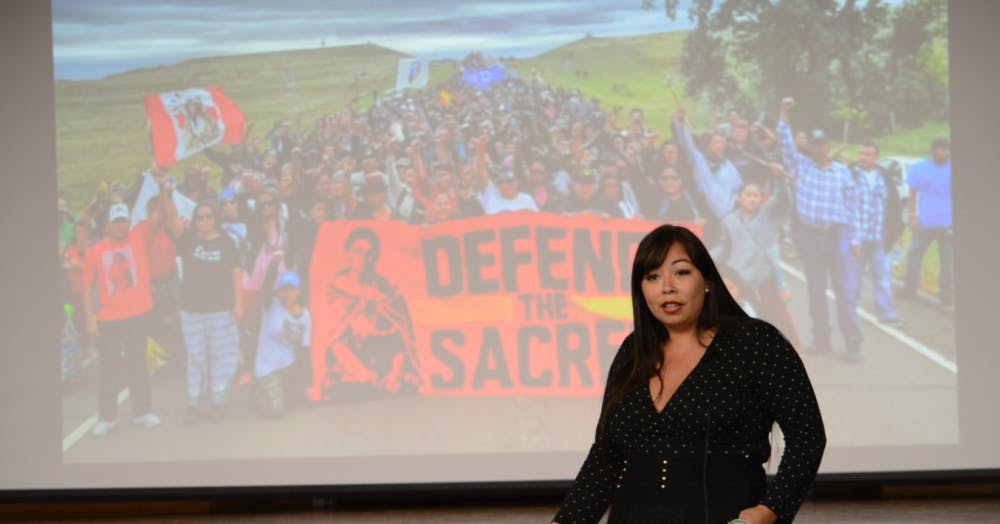When the elders of Matika Wilbur’s tribe asked her to compile the photographic history of Native Americans as a project for classes on the reservation, she was disappointed with what she found. She said the only photos she seemed to be able to find were that of “leathered and weathered, prehistoric and false representations of Native America.”
The images were stereotypical. They told a history that stopped at the beginning of the 19th century and didn’t represent the modern indigenous culture Wilbur knew and loved. She set out to fix that.

Wilbur told her story to community members at the University of Northern Colorado on Tuesday night as part of the Indigenous Women Lecture series, hosted by Native American Student Services.
Wilbur comes from the Swinomish and Tulalip tribes on the coast of Washington. She taught at the Tulalip Heritage High School for five years before she began her project. In those five years, 19 of her own students died.
“It kept happening over and over again; I remember I would sit in those lodges with the other teachers and I would be crying, begging the Creator to help us,” Wilbur said. “What are we doing wrong? Why does this keep happening? It was when that was happening that I came to realize that as long as I was participating in a false narrative, reiterating the old world language, teaching the kids lies about their own selves, that I was a part of the problem.”
In 2012, Wilbur began traveling across the country in an attempt to document every tribe in the United States with her camera. Her endeavor was called Project 562, after the 562 federally recognized tribes in the country. It turns out there are actually about 900 tribes in the country including state recognized tribes and urban tribal communities.
“The idea behind 562 is that we want to change the way we see Native America,” Wilbur said. “We want to drive conversations about the ubiquitous appropriation of native culture.”
She shared with the audience her favorite stories over the past seven years of her project, including the most poignant tales she heard and the ones she said shaped her the most.

“Hopefully it will leave you feeling a little better than when you get here today,” Wilbur said. “In that way, I will give them to you the way they were given to me.”
Stories ranged from the Native American rapper Supaman to a pow wow for two-spirit individuals. At this pow wow, Native Americans who fulfil a gender-variant role attended a large ceremony with dancing and feasts. Wilbur also touched on her experiences at that Dakota Access Pipeline protests near the Standing Rock Indian Reservation in 2016.
While the pipeline was eventually constructed, Wilbur said there was still success in the “fire” that was lit in members of tribes across the country. The unity at Standing Rock led to tribes around the country to revamp their own efforts to celebrate their culture and unite.
Sexual assault of native women was also an important topic to Wilbur, as three in four native women will be assaulted in their lifetimes. She said that although the topic is uncomfortable, it is important to discuss.
Tuesday happened to be the day that Wilbur launched her podcast, “All My Relations,” and she encouraged students to listen to it. Her cohost Adrienne Keene will be talking to UNC tonight as part of the lecture series.
Keene’s talk will focus on cultural appropriation. Doors open tonight at 5:30 p.m. at the Milne Auditorium in Kepner Hall.







